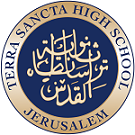Kindergarten
Overview
The Terra Sancta Kindergarten program provides a vital bridge between the early childhood learning experiences, and the future tasks of elementary school. Age in our Kindergarten goes from 3 to 5 years old with a total of about 120 students divided by: 3 years old with 1 class and 4 years old with 2 and the same goes for those 5 years old. The objective of kindergarten is to further the improvement of reading, writing, speaking, science, and mathematics skills through concrete involvement through different activities. Lessons are centered through a strategy of linking together activities of knowledge throughout the academic year to reach the desired growth before confronting elementary.
Teachers, which we view as investigators, are learners alongside the children and constantly engage in observation and documentation in order to provide the best educational background for children. Teachers are committed to their work in teaching and learning, something that is reflected in the accomplishments of their students.
The Learning Environment is another reflection of our belief that the students are of nature curious as they seek relationships with others, and create knowledge and understanding of the world through a direct contact with their surroundings. Our indoor and outdoor facilities offer children an opportunity of experiences. A leading task for teachers is to provide an atmosphere that is filled with unlimited possibilities that motivate children to make breakthroughs, to experiment with their own beliefs, and to interact in meaningful ways with each other, adults, and with themselves. The classroom is intended to be responsive to the interests and necessities of children and at the same time encourage them to develop each in different ways as best as possible.
Art
In art, students are encouraged to freely express themselves and work with different resources as pencils, crayons, scissors and the experience of paint. Moreover, students will practice working with more materials safely as for example when using clay. Lastly, the children will learn not only how to work with are but also to care for it when in the room and with the materials.
Math
The course in Mathematics is based on a wide variety of sources. The students study the main concepts of numbers, operations, patterns, geometry, measurement, and mathematical problem solving. Some topics that are under the main concepts mentioned include: sorting and classifying, counting of numbers, shapes, measurement, and time.
Science
With Science, the students continue to improve their comprehension of the scientific process by making observations, asking questions, testing simple experiments, and then by reaching to conclusions. Some of the concepts that are taught in Science include trees, eco system, and animals.
